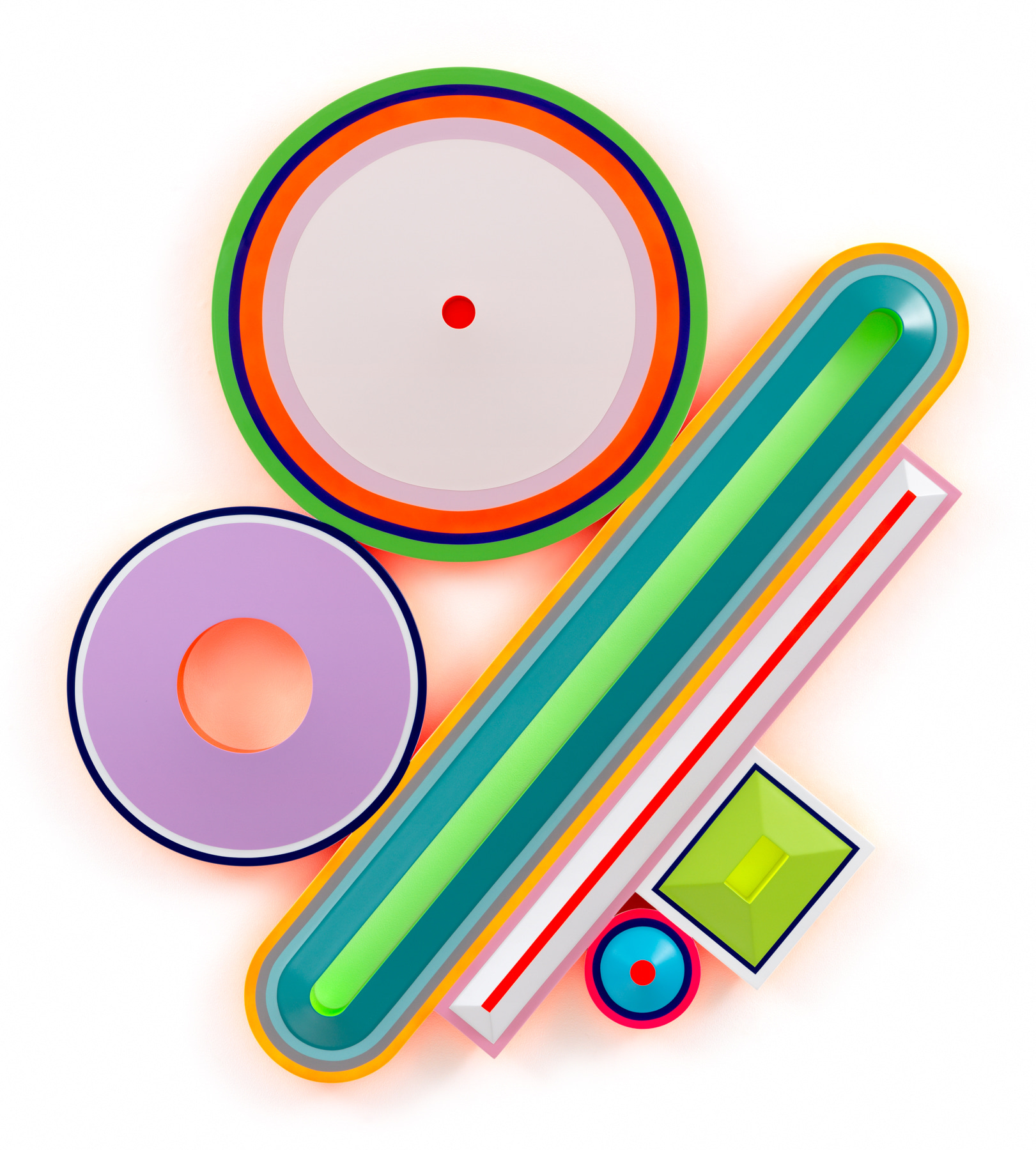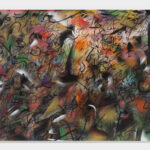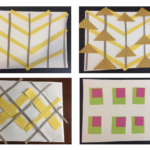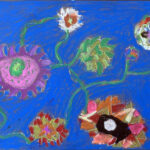Overview
In this lesson, you will explore the work of Beverly Fishman and analyze how she uses scale, composition, and color. Then, explore a similar process in your own work to investigate how these elements influence the viewer’s response.
Materials and Tools
- Pencil
- Paper
- Construction, painted, or colored paper
- Scissors
- Glue or tape
Objectives
Students will understand:
- Artists can adjust composition to guide attention and create visual appeal.
- Changing the scale of shapes or elements can create emphasis or relationships that convey meaning.
- Color choices can influence mood, meaning, and the viewer’s emotional response.
- Titles can provide important context that shapes how we interpret an artwork.
Students will be able to:
- Generate a series of thumbnail sketches in the process of creating a final piece.
- Experiment with the scale and position of shapes to explore a variety of compositional outcomes.
- Adjust their use of color to create a variety of emotional responses to the same composition.
- Title their work to add meaning or context.
Activities
Close Looking: Beverly Fishman
Take a few minutes to look closely at the following two paintings by Beverly Fishman
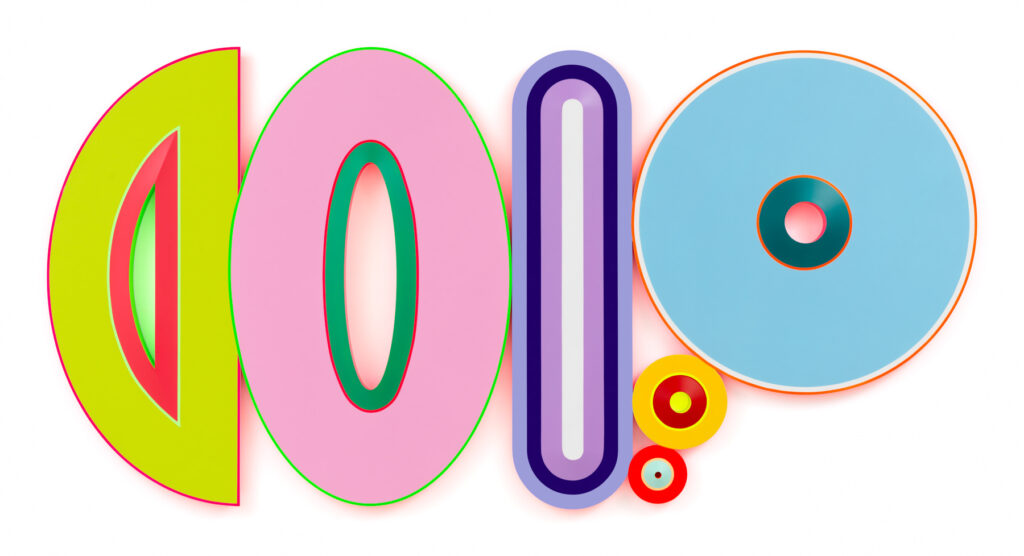
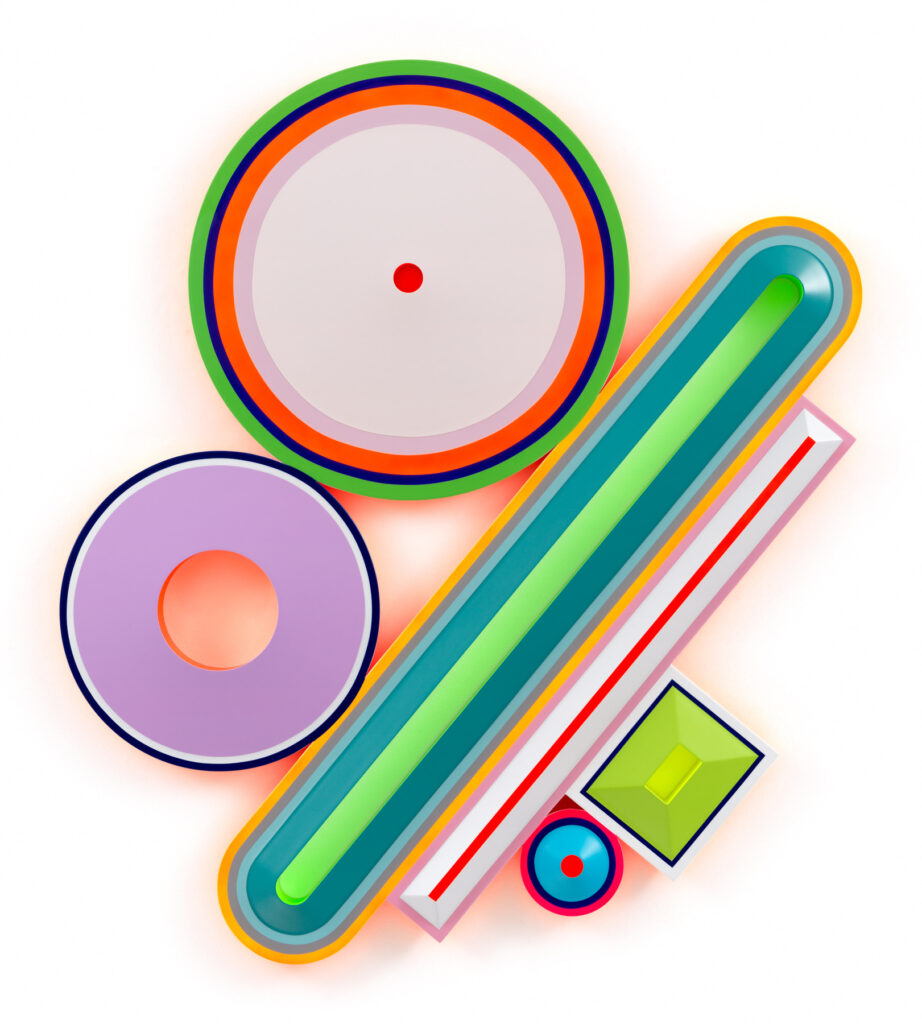
Questions for Discussion or Reflection:
- What do you notice about these two paintings?
- What is similar between them?
- What differences do you notice?
- How does each piece make you feel?
- Do you prefer one over the other? If so, why?
- What do the titles make you think about?
Beverly Fishman is an artist who uses abstract shapes and bright colors to explore how medicine and science affect our bodies and lives. Her artwork is inspired by things like pills, medical technology, and scientific images. Her work encourages viewers to think about the hidden connections between medicine and our daily lives.
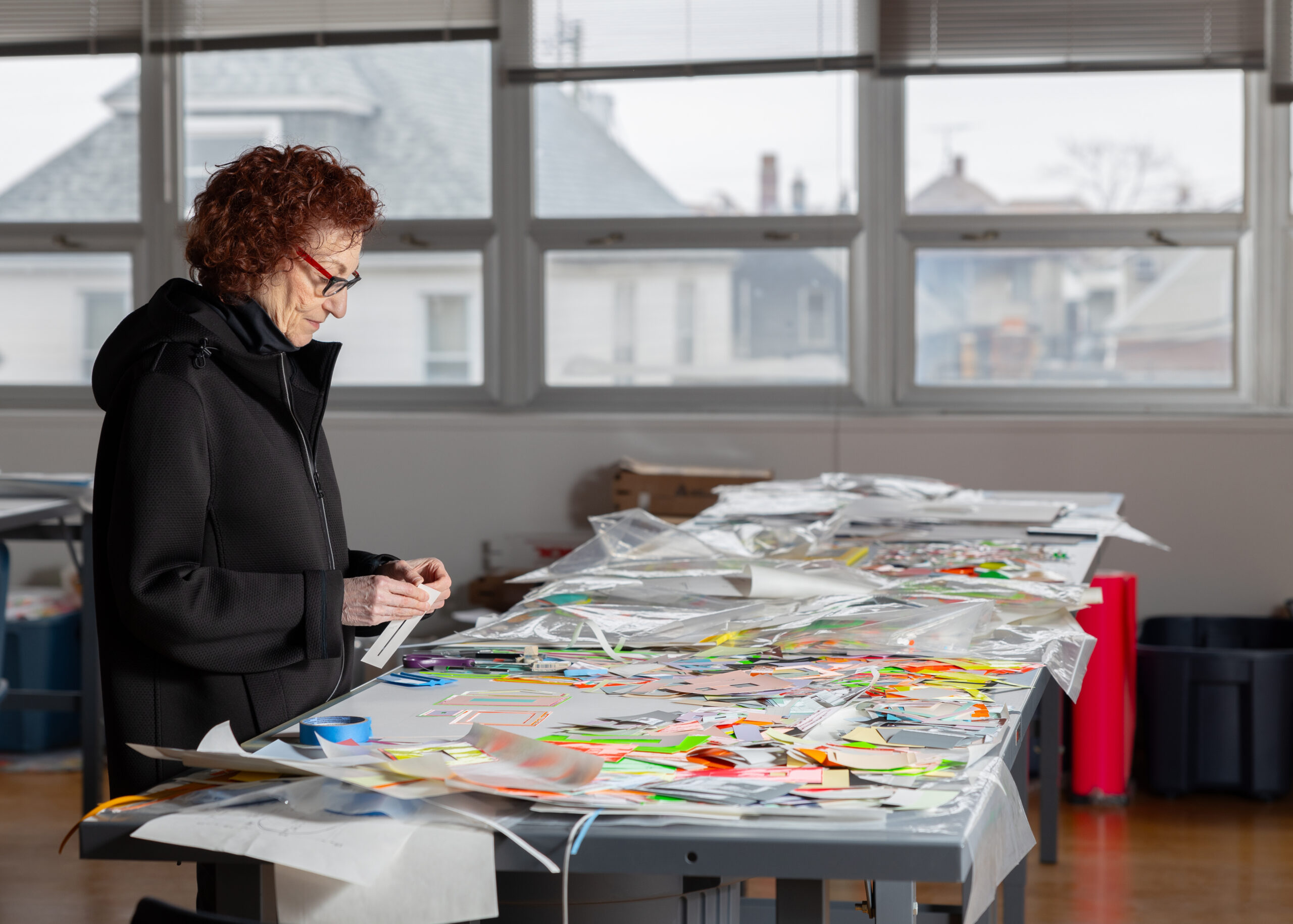
Thumbnail Sketches
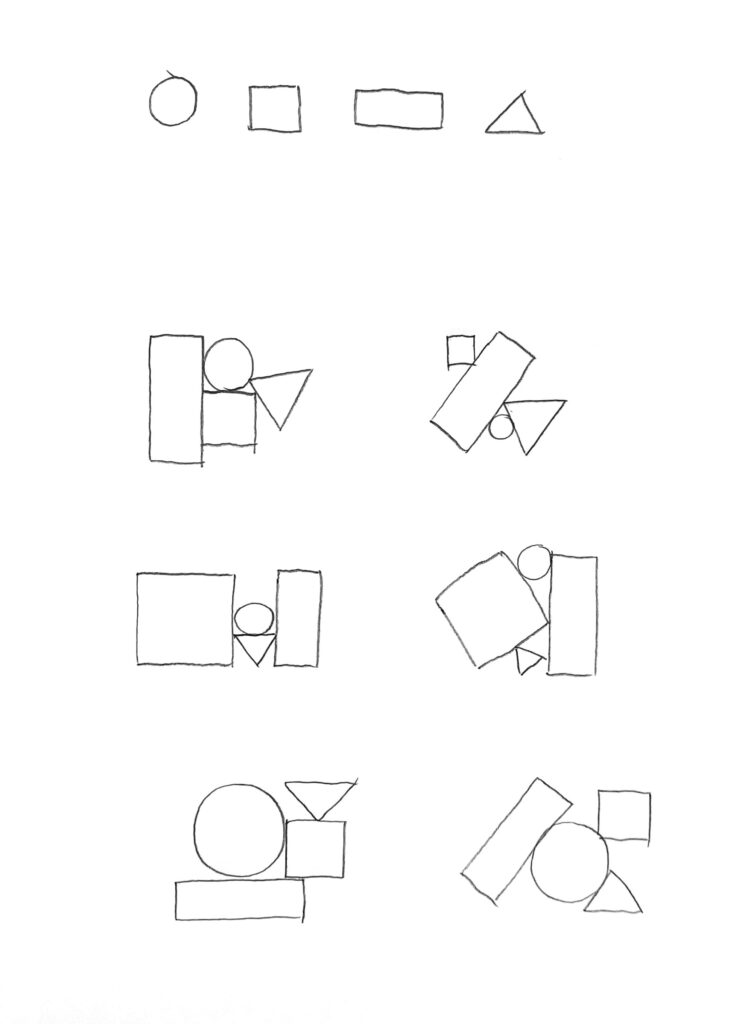
Scale is the relationship between the sizes of elements—such as shapes—within an artwork.
Composition is the way elements—such as shapes—are arranged or organized.
Choose 4 or 5 simple, easily reproducible shapes. You’ll use these to draw 6 different thumbnail sketches.
In each sketch, try different sizes and positions for your shapes to explore a variety of compositions.
Consider:
How are compositions that are organized in a grid different from those that use a more dynamic or freeform arrangement?
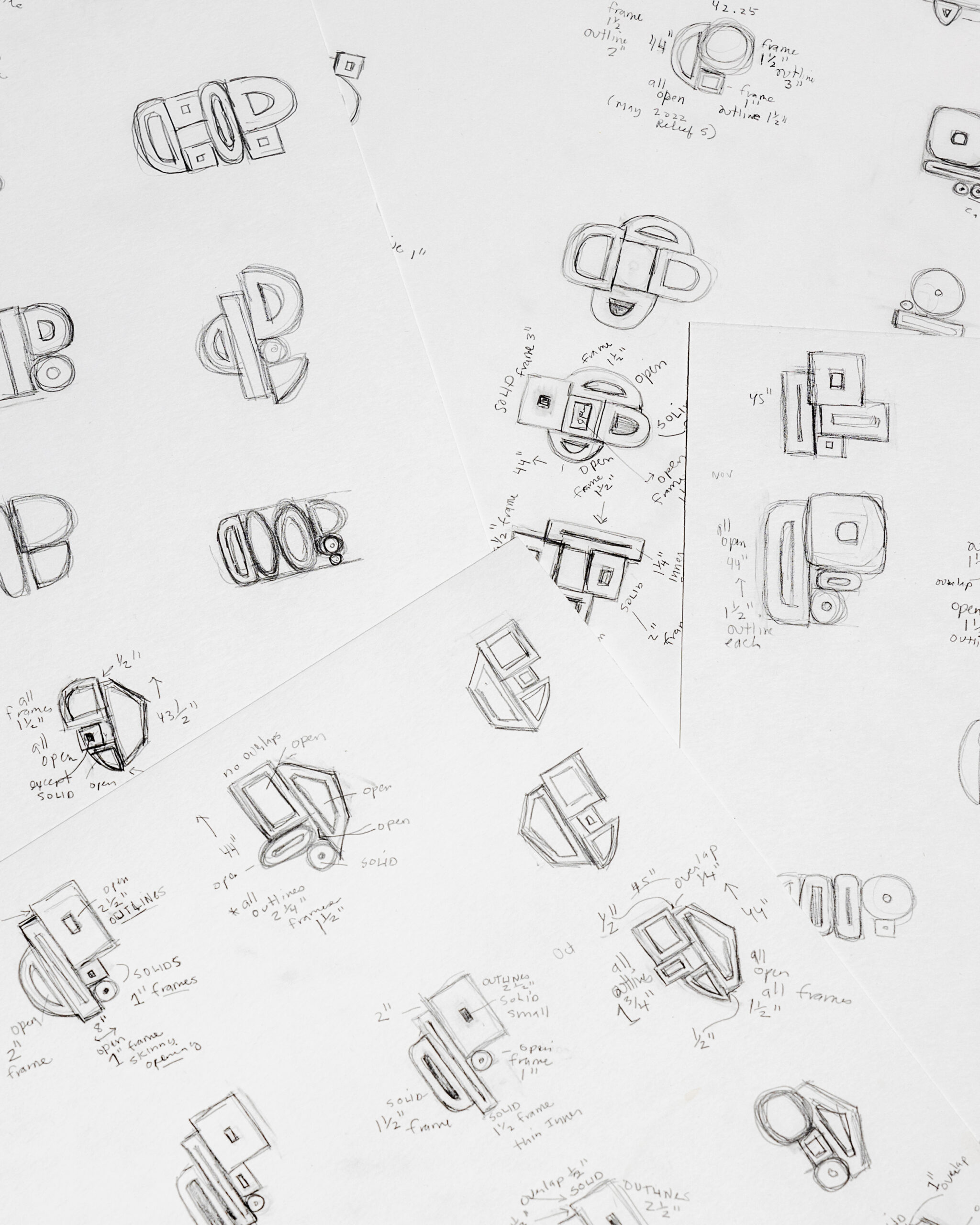
Adding Color
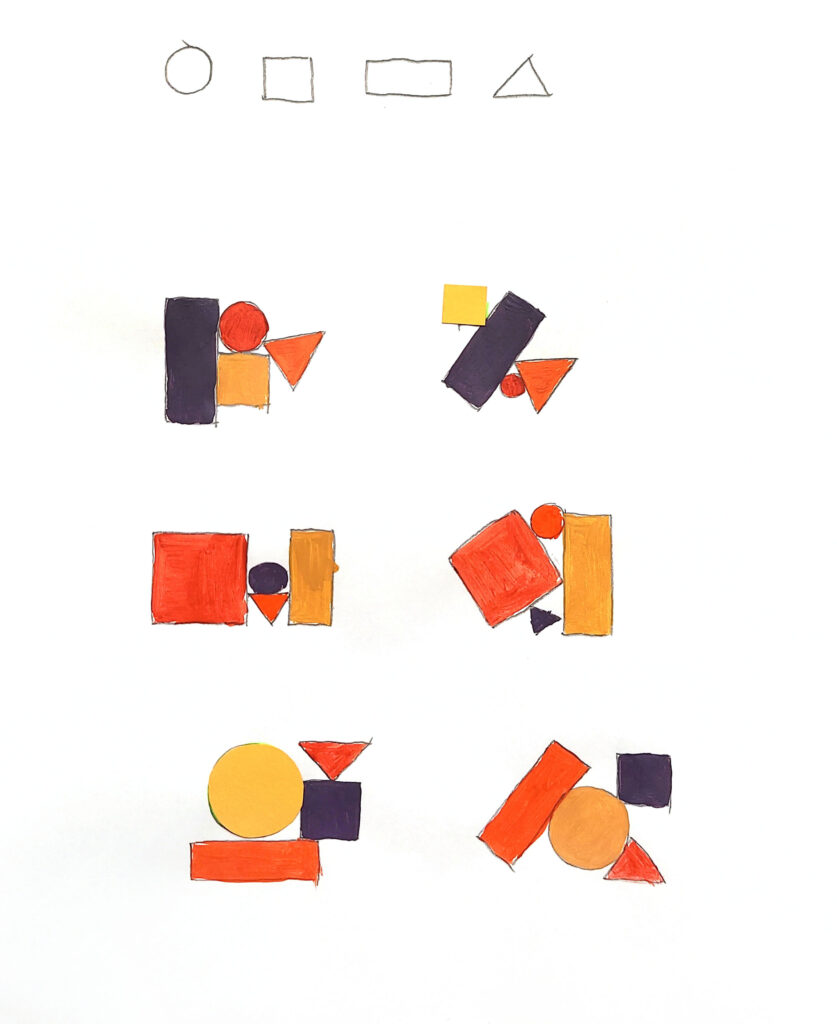
Choose 3 to 4 colors, tints, and shades and add color to the shapes in your thumbnail sketches. Notice how your experience and interpretation of each sketch changes as you adjust the color, scale, and placement of each element.
- Which sketch do you respond to the most? Why?
- Which one do you respond to the least? Why?
Final Composition
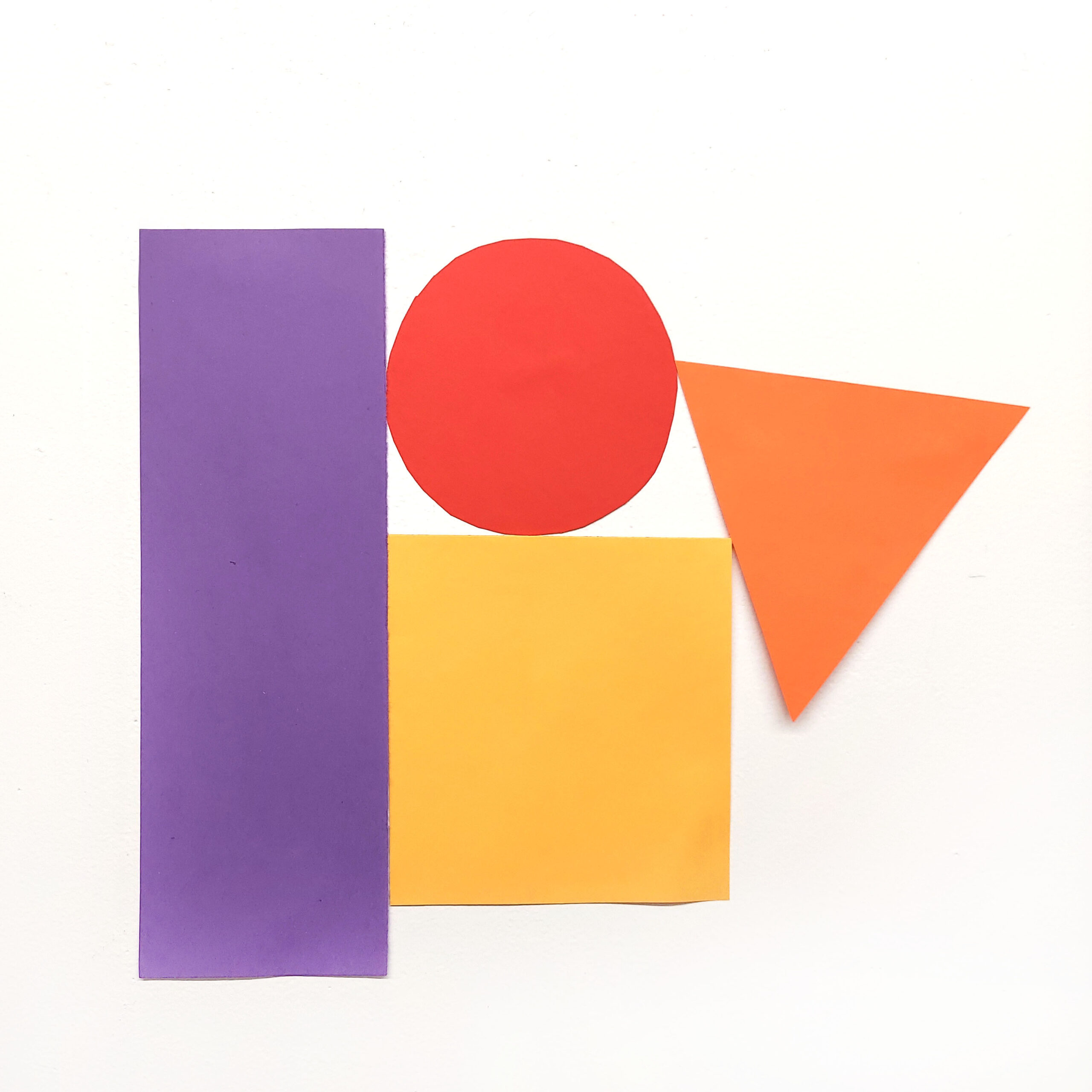
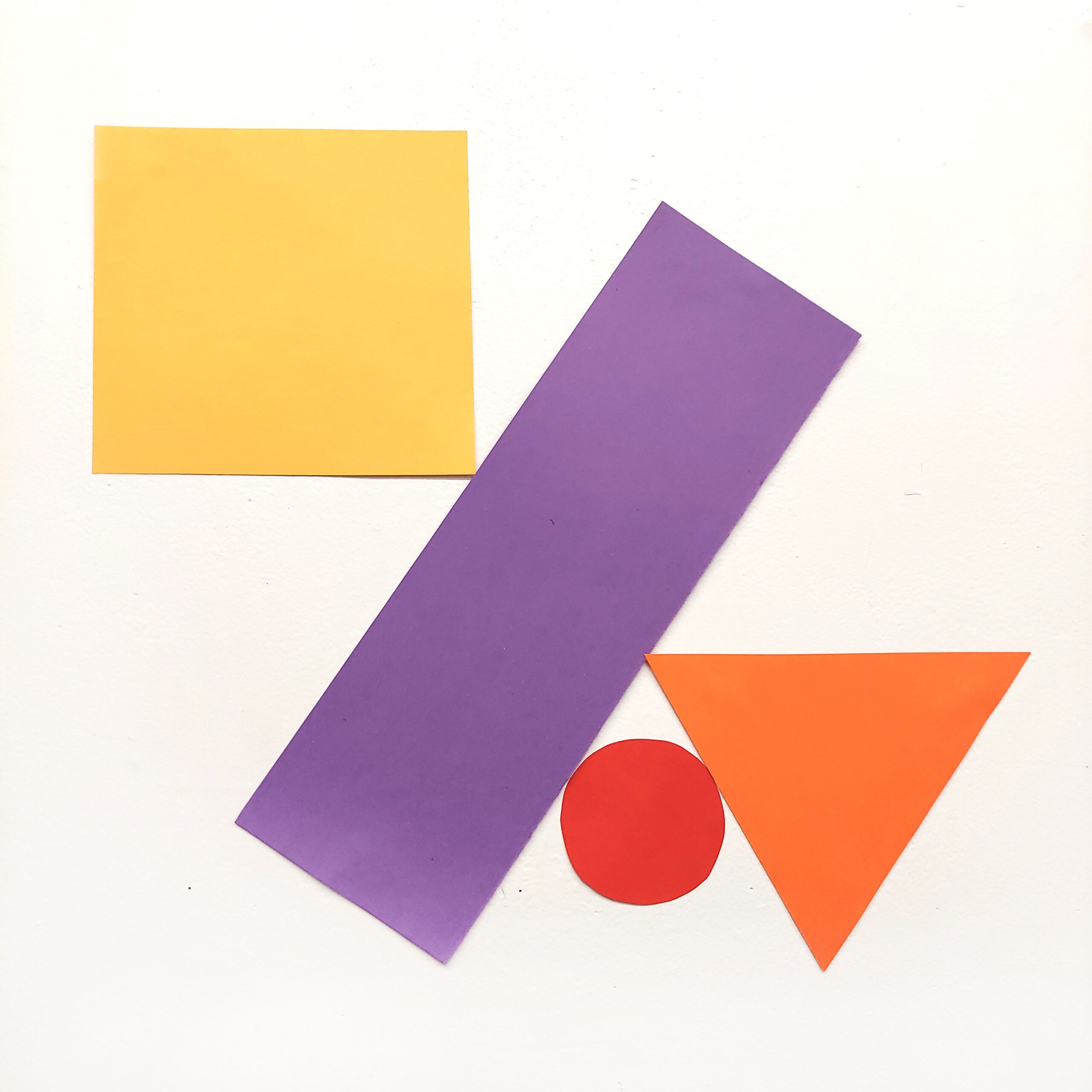
Use painted paper or construction paper to cut out the shapes to of your two most successful designs.
Assemble each composition using glue or tape.
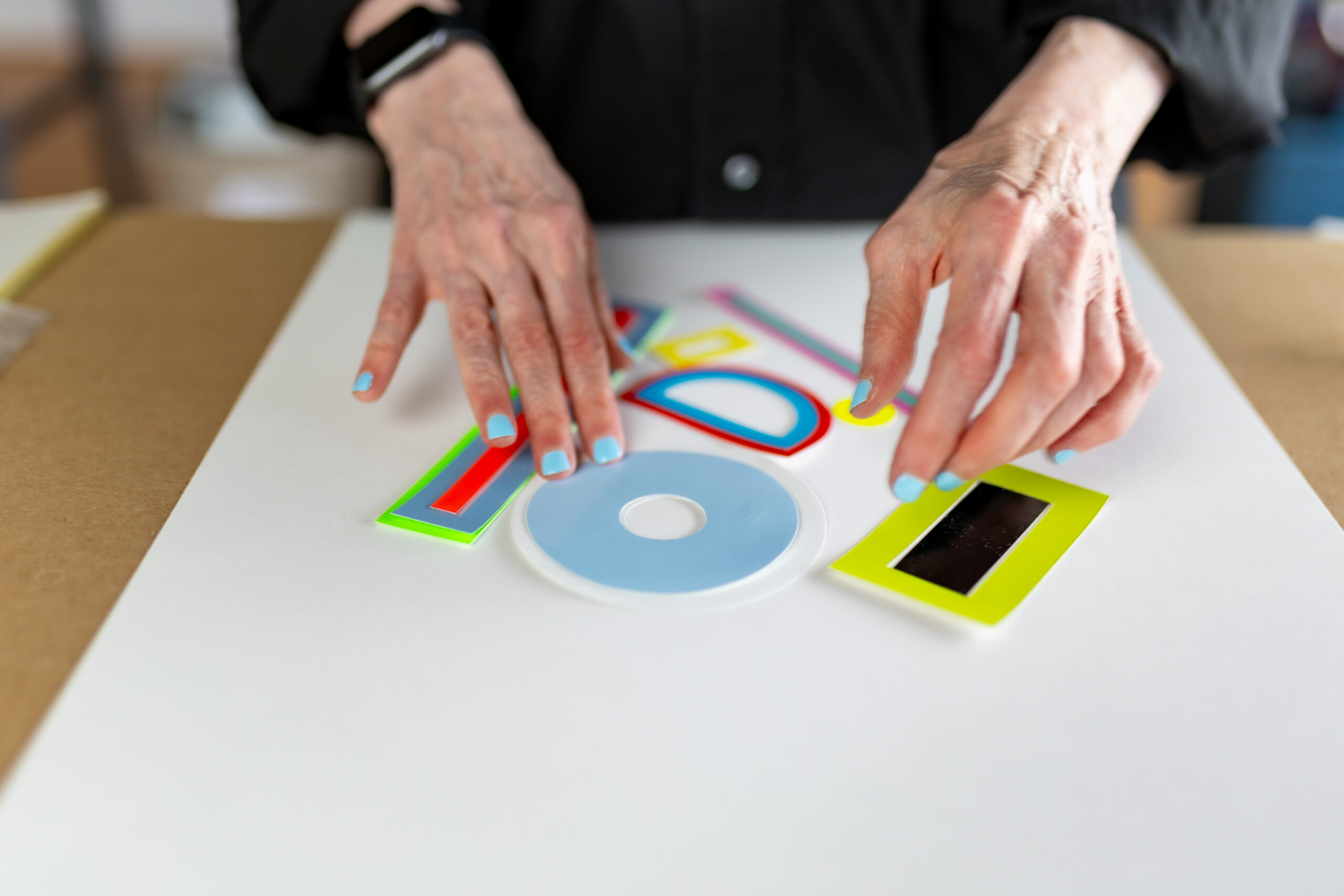
Title Your Work
Beverly Fishman uses the titles of her paintings to help guide the viewer’s experience of her work.
- How can your title help influence the way someone responds to your artwork?
- What emotions or thoughts do you want your viewers to have when looking at your collage?
- Do you want to describe the meaning directly, or would you prefer to use related words that evoke similar ideas?
Brainstorm 5-10 words related to your ideas, feelings, or themes—then choose from these to create a title for your work.
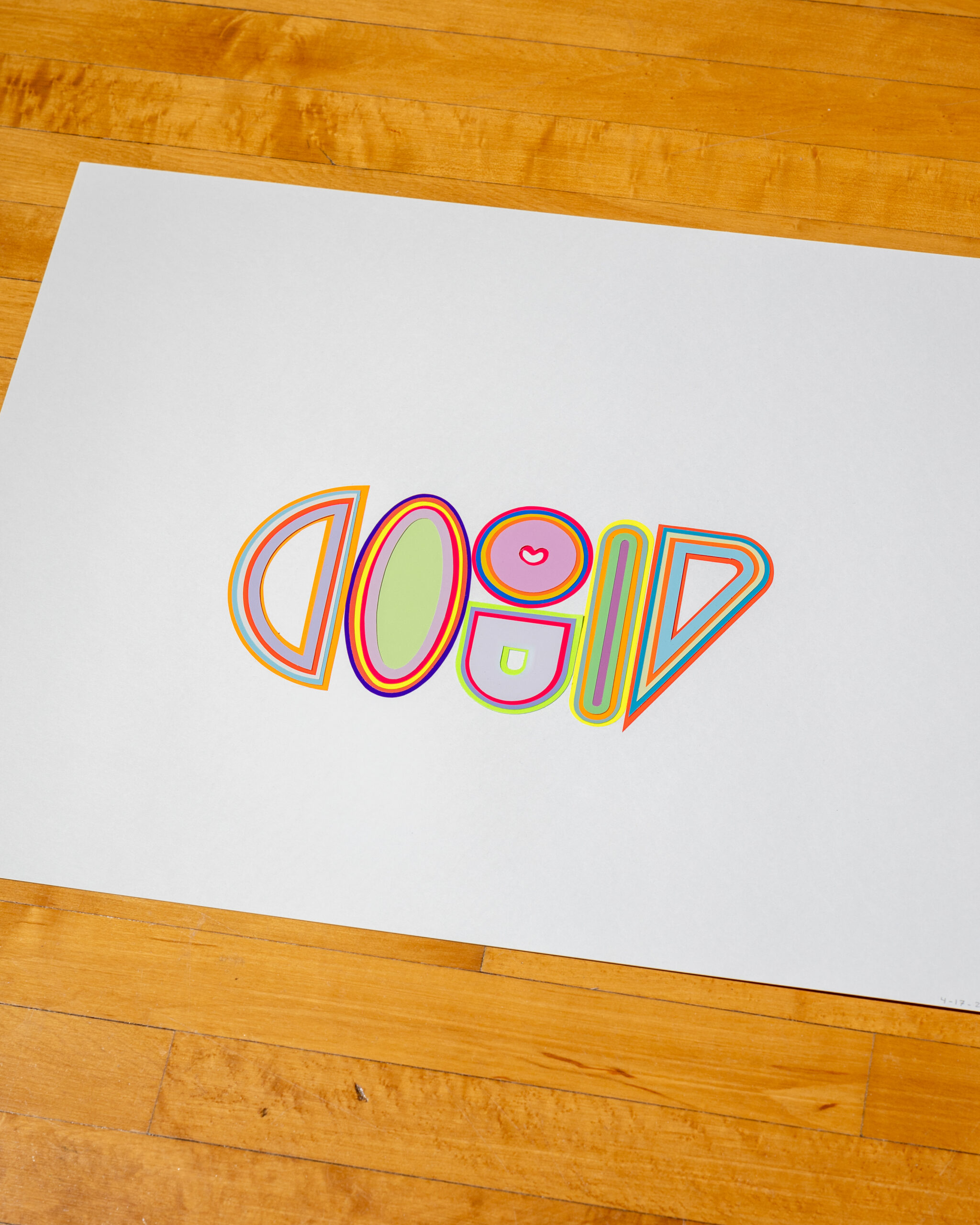
Reflection Questions for Discussion
- Which is most important in your artwork—scale, color, or composition? Why do you think that was the most important in your process?
- Do you think Beverly Fishman’s approach to titling her artwork could influence how you title your own work in the future? If so, in what way?
Vocabulary
- Scale: The relationship between the sizes of elements within a piece of art.
- Composition: The way elements are arranged within an artwork.
- Color: An important element used by artists to represent, describe, and evoke emotions in their work.
- Title: A word or phrase used to distinguish and add meaning or context to an artwork.
Resources
For more inspiration, explore Beverly Fishman’s artwork in Geometries of Hope and Fear at the Miles McEnery Gallery in New York City or on their website from May 8 – June 21, 2025.
Online Courses for Educators
Credits
Written and Illustrated By:
Matthew Mahler, Artist Instructor
Lesson Development:
Andrea Burgay, Director of Digital Learning
Beverly Fishman artworks and photos courtesy of
Miles McEnery Gallery
Copyright © 2025 Studio in a School NYC LLC

